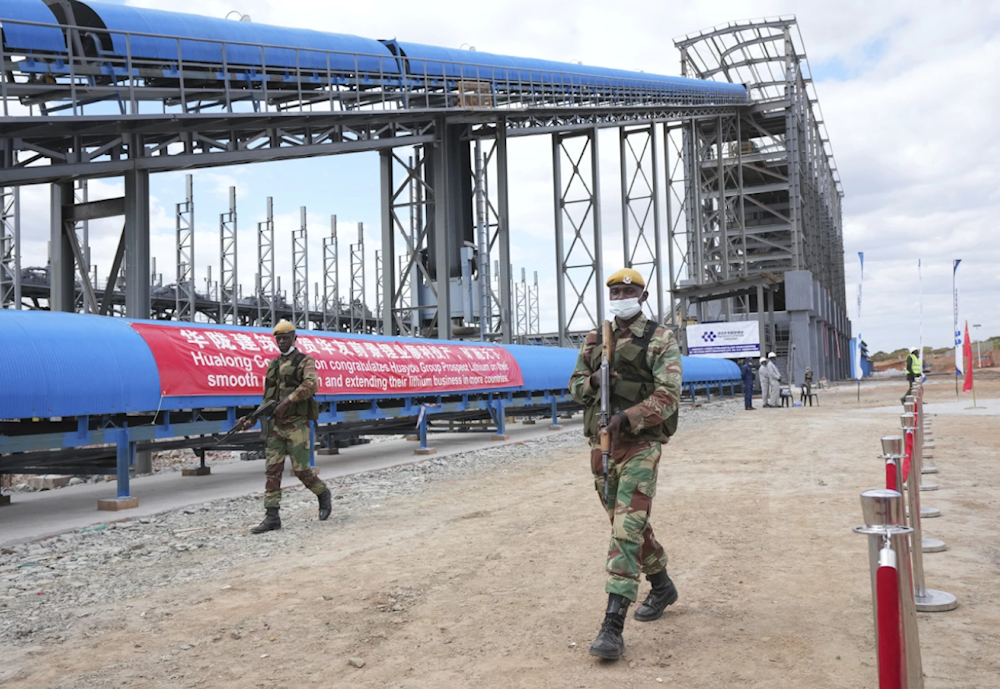Nigeria to commission two Chinese-backed lithium processing plants
Two additional processing plants are planned in Nasarawa State, adjacent to the capital, with commissioning expected before the third quarter of 2025.
-

Armed soldiers patrol the grounds of Prospect Lithium Zimbabwe's processing plant in Goromonzi, about 80 km southeast of the capital Harare, on July 5, 2023 (AP)
Nigeria is set to commission two major lithium processing plants this year, signaling a strategic shift from exporting raw minerals to creating domestic value through processing and manufacturing, the country’s mining minister announced on Sunday.
The two facilities, largely financed by Chinese investors, are expected to boost job creation, spur technology transfer, and drive industrial growth. A $600 million lithium processing plant near the Kaduna-Niger border is scheduled to launch this quarter, while a $200 million refinery near Abuja is nearing completion, according to Mining Minister Dele Alake.
Two additional plants are also planned in Nasarawa State, adjacent to the capital, with commissioning expected before the third quarter of 2025.
Alake announced the country was focused on turning its mineral wealth into economic value at home through jobs, technology, and manufacturing.
Jiuling Lithium Mining, Canmax contribute over 80%
Chinese firms, including Jiuling Lithium Mining Company and Canmax Technologies, have funded over 80% of the total investment in the four plants, according to state governors. The remaining stakes are held by local firm Three Crown Mines. The Chinese companies have not yet commented on the projects.
This push for domestic lithium processing follows a 2022 study by the Nigerian Geological Survey Agency, which confirmed large deposits of high-grade lithium across several states, attracting international attention and investment.
These developments form part of a broader reform of Nigeria’s underperforming mining sector, which currently contributes less than 1% to GDP. Additional reforms include a ban on unprocessed mineral exports, formalization of artisanal mining, and the creation of a state-owned mining company allowing up to 75% private ownership.

 2 Min Read
2 Min Read










